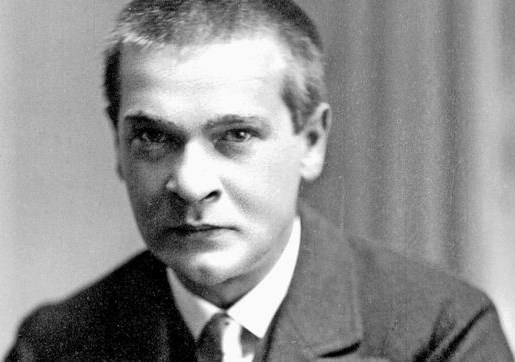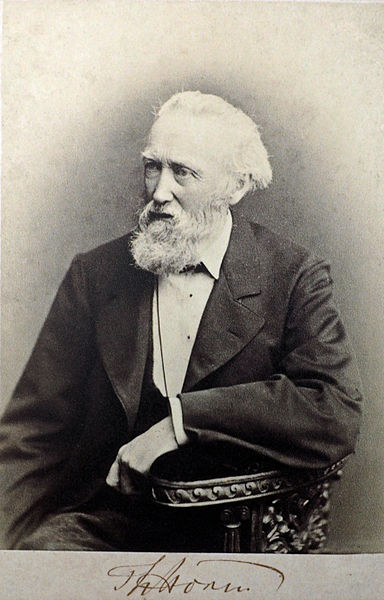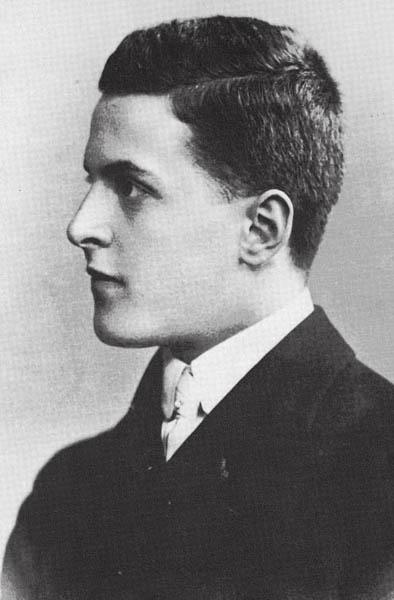I came to the Austrian German poet Trakl depressed and didn’t leave any happier. His short oeuvre, written in the final years before the first world war, is not for the faint of heart. There is very little joy to be found here, and what beauty there is in his poems is tainted by an overwhelming sense of decay. But what Trakl does offer, above and beyond his despair and endless talk of decline, is a unique view of the world, and a unique language of symbols for appreciating it. Each of his poems is a mysterious mood-piece, filled with images whose interpretations are never definite. Rilke’s view, that reading Trakl is like being “an outsider pressed against panes of glass”, looking into a space of experience which “like the space in a mirror, cannot be entered”, hits the mark.

Trakl is a strange poet, but he is also one whose work is tragically beautiful, and I hope to show that in these few translations below. His concerns seem perfect for our own age. The empty spiritual gulf left by religion’s decline, the feeling of foreboding as the world enters a new era without any ballast or sense that we are prepared for its challenges, and even the loss of a deep understanding of and connection to the natural world – all these are just as relevant now as they were as the First World War erupted. To face Trakl’s dark world is to be given a way of visualising the darkness of our own. So let’s begin.
The Poems
Trakl’s poems are made up of short and simple sentences, that are nonetheless often hard to understand. There’s a lot of ambiguity due to the syntax and punctuation, and whenever I’ve met something unclear, I’ve aimed to convey that same uncertainty in the English. After all, I’m trying to translate a mood and an atmosphere, not a technical document. If I have managed that, then I can be happy with how these have turned out. Following the poems is a bit about Trakl’s life and a conclusion.
Song of a Captive Blackbird (DE)
Dark breath in green twigs.
Blue blossoms float around the face
Of the lonely one, his golden step
Dying under the olive tree.
The night is filled with the fluttering of drunk wings.
So quietly bleeds out humility,
Dew, which slowly drips from the blossoming thorn.
The mercy of shining arms
Embraces a breaking heart.
Spiritual Twilight (DE)
Silence encounters at the forest’s hem
Its dark quarry.
On the hill the evening wind ends quietly,
The blackbird’s cries are stilled,
And the soft flutes of autumn
Go silent in their pipes.
On a black cloud
You sail, drunk on the poppy,
The ponds of the night,
The stars in the heavens.
The sister’s lunar voice is always calling
Through the spirit’s night.
The Sun (DE)
Daily comes the yellow sun across the hill.
The forest, the dark beast, man – hunter or shepherd –
All are beautiful.
Reddish rises the fish in the green pond.
Under the round heavens
The fisherman quietly rows in his blue boat.
Slowly ripens the grape, the grain.
When the day silently ends,
A good and an evil is prepared.
When the world becomes night,
The wanderer quietly lifts his heavy eyes;
The sun breaks out of a gloomy chasm.

In Spring (DE)
Softly sank from dark steps the snow;
In the shadow of the tree
The lovers raise their rosy lids.
Star and night always follow
The dark calls of the mariners;
And the oars beat softly in time.
Soon on the ruined wall blooms
The violet;
The temples of the lonely one silently grow green.
Autumn Homecoming (DE)
Remembrance, a buried hope,
Preserves this brown wood frame,
Where dahlias hang above -
An ever stiller homecoming;
The ruined garden, the dark reflection
Of childhood years,
So that from blue lids the tears plunge
Unstoppably.
Now swim the glassy minutes
Of gloom
Over and into the night.
Who was Trakl? Biography and its Absence
Georg Trakl was born in 1887 and died towards the end of 1914, likely by his own hand. He was born in Salzburg to a family of not great financial means, but all the same this is where he was most happy. His relations with his sister Grete, herself a musical prodigy, may well have been incestuous. In his poems Trakl often writes about the “sister”, but it’s difficult to know what to make of that. What is more clear is that Trakl developed a drug addiction that he supported through becoming a pharmacist. Once war broke out Trakl joined the Austro-Hungarian army as a medical officer on the Eastern Front. By this point his mood was extremely unstable and the experience of the battle of Grodek, though it led to perhaps is most famous poem, also led to Trakl’s final breakdown and probable suicide of a cocaine overdose.
Yet all of this is almost irrelevant in the poems. As is clear above, Trakl hides himself from view. The experience of reading his work is rather like floating through a deep fog. There is nothing so solid as an “I”, even a lyrical “I”, to hold on to. The places of his life certainly make their appearances, including Grodek itself, but always more as symbols and maps of an internal world than as real settings, at least it seems that way to me.
The lovely German edition of Trakl’s work from Reclam which I’ve been reading also includes many of his letters. But these, too, are not of much use for understanding his poems. We can hear Trakl’s own voice, always in pain, and always suffering. It only caused me to feel a terrible and futile desire to help the poor man, but the poems remained – perhaps thankfully – impenetrable. “I was terribly sick for a few days, I think from a mourning that cannot be put into words”. Shortly before he dies he writes “I feel like I’ve already almost passed over into the beyond”. What I like about him so much is that his sensibility really does seem to belong to another world, no matter how much suffering seems to be involved.

Conclusion – Religion and the Poppy
Probably my favourite pieces here are the first two. The image of the blackbird, of the innocent forced to suffer its way through the world, lies at the heart of Trakl’s whole project, and the bird’s short and brutal poem strikes me as being particularly beautiful. But it also contains within it a rare hint at redemption. Trakl’s religious inclinations are, as with so much else about him, not entirely clear. But for me at least, this poem has a spiritual angle to it: the suggestion that for all our suffering there may lurk at the end of the tunnel a kind of salvation. It’s not unlike Dostoevsky, in its way.
As for “Spiritual Twilight”, I love its tone and sense of mystery. For me it really conveys that world of abstract rumination we fall into somewhere in the depths of our despair. It is a weightless poem, just as we, in our thoughts, are weightless too. But one day we must open our eyes. And that is where the challenge lies.
The last word on all this should go to Trakl himself. This is how he describes himself, towards the end of his life: “Too little love, too little justice and mercy, and always too little love; too much hardness, pride, and all sorts of transgressions – this is me. I am certain that I only refrain from evil out of cowardice and weakness and in doing so shame even that part of me.”
I hope, having read a few of his poems, you have a sense that for all the mercy and love he did not receive himself, he was more than willing to give plenty of it out to those who needed it in his work. The strange thing is, for all his despair, I find myself feeling less alone for reading in his company. And that’s why I think he’s a fantastic poet.
What did you think?



